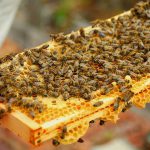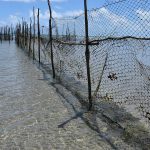
Introduction
Small-scale farming is useful and should be supported. Entry levels are lower than for commercial farming; machinery and technology is not as sophisticated, and it creates food security for the families who are farming, allowing for economic activity. As pointed out in an article listed under the “Websites & publications” heading, agriculture does not have to be the sole source of revenue for the small-scale farming household. “Smallholder livelihoods all over the world do not just consist of farming … So when considering the potential for smallholder farming development, we shouldn’t think about farming viability, but household viability and increasing food sources for very poor rural households.”
The major challenge for agriculture, and with it the hopes of the country, is the emerging Black commercial farmer. Support here will enable such a farmer to become an active participant in the commercial farming sector. We need our emerging farmers to succeed, not only because of transformation targets, or for righting the dispossession of the past, or for stability and jobs in the rural areas. We need our emerging farmers to succeed because this is the sector from which our food comes. It is possible to be a farmer in the post-deregulation business environment. The 37 000 or so commercial farmers who adapted and who are now among the best in the world prove this to us.
A cause for concern is that these commercial farmers (and farm workers) are getting older, the average age being just over 60 years-old. This is of great concern to the country’s future. It’s not enough to speak about how the youth should be encouraged to pursue occupations in agriculture if we are not marking out paths for them (Sihlobo, 2017). It is a national issue that farmers are supported, and with them the ones who for no fault of their own are relatively new on the land, or those who are contemplating a career in agriculture.
Contents
Contents
International business environment
African business environment
The importance of skills
The importance of markets
The importance of security of tenure
The importance of access to finance
Commercial farmer points of interest
National strategy and government contact
Role players
Research
Websites and publications
International business environment
- There are some 500-million smallholder farmers worldwide and more than two-billion people depend on them for their livelihoods (IFAD, nd). Small farms produce about 80% of the food consumed in Asia and sub-Saharan Africa. Find “Viewpoint: Smallholders can feed the world” at www.ifad.org, website of the International Fund For Agricultural Development (IFAD).
- The Food and Agriculture Organisation (FAO) of the UN has supporting smallholder farmers in Africa as a priority. See www.fao.org.
- Oxfam International has several papers dealing with small-scale agriculture. Find these at www.oxfam.org/en.
- African Forum for Agricultural Advisory Services www.afaas-africa.org
- www.technoserve.org – Technoserve offers “Business Solutions to Rural Poverty”. An international organisation which has many small-scale farmer initiatives
- It can be revealing to find out what is happening in the rest of Africa. Take a look at www.naads.or.ug, Uganda’s National Agricultural Advisory Services. See also the websites of international groupings mentioned on the “Research and development” page.
- Access different resources at www.prolinnova.net (PROmoting Local INNOVAtion) .
African business environment
Agriculture is at the heart of addressing poverty in Africa. Much more than in any other region, agriculture is a major driver of African economies, typically representing 30-40% of GDP and 65-70% of labour force.
It’s true that Africa’s agricultural transformation will be a complex, multi-sectoral agenda that requires different enabling factors, from sufficient financing and the right policies to the implementation of climate-smart agriculture. But it’s also true that success depends on one crucial factor: the engagement of smallholder farmers. Africa’s agricultural transformation will need smallholders to succeed.
Smallholder farmers continue to dominate African agriculture although some countries–for example, Ghana, Tanzania and Zambia–are experiencing a rise of medium-scale farms of between five and 100 hectares as part of the region’s broader economic transformation. Smallholder farmers still control the largest areas for production. They employ 70% of the work force, farm most of the land, and are home to most of the poor – so the most obvious way to make agricultural growth pro-poor is to engage with huge numbers of small farms.
However, smallholder farmers face major challenges today. They are at a major disadvantage in linking to modern value chains because of their low volumes of sales, poor market information and contacts, and limited ability to meet the high standard requirements of many high value markets. Because of their small size and reach, they are perceived to be high cost and high risk farmers by private agrodealers and financial institutions.
So how can people working in the agriculture sector support smallholder farmers?
- First, there is need to provide supportive incentives and policy reforms for farmers and agribusinesses. For example, modern inputs and credit remain out of reach for many smallholders. Farmers could benefit from a package of inputs and credit. The issue of land tenure policy reform is critical. Between 10-45% of businesses describe access to land as major constraint. There is need to build institutions that help farmers–including youth and women– access land and engage in profitable commercial agriculture.
- Work also needs to be done on scaling up investments in infrastructure and technology, particular technology that helps farmers produce more food. (i) Neglecting to invest in agricultural research and the creation of many small, underfunded research institutions has caused setbacks that will need to be addressed. (ii) Africa also needs investments to develop agricultural education at all levels. (iii) Finally, Africa’s aging infrastructure cannot launch or sustain internationally competitive commercial agriculture without investment, especially in irrigation, roads, energy, and logistics, especially port infrastructure.
- We also need to strengthen institutions to make markets work better for smallholder farmers. Some of these institutions would provide critical services such as access to finance, market intelligence, marketing and business development services—all things that the private sector currently has few incentives to provide. We need to focus on improving coordination and leveraging partnerships among the different key players including but not limited to multilateral and bilateral development finance partners, the private sector, the Consultative Group on International Agricultural Research and African national and regional institutions.
The challenges facing agriculture are great but we have reasons to be optimistic. Agriculture’s value added increased by 5.1% between 2000 and 2013. There’s no limit to what agriculture can achieve—in terms of feeding Africa, creating jobs, and helping to end poverty and boost prosperity. We have to work hard to make sure that smallholder farmers will be part of the work to meet Africa’s growing food and beverage markets –which are expected to top $1 trillion in value by 2030.
Source: Ehiu, S. 2017, October 13. "How can we help smallholder farmers seize opportunities in Africa?" (adapted). Find full citation under heading 12
The importance of skills
There are many types of skills. The technical know-how is vital, as is knowing how a business works (the farming enterprise that is not profitable will not be in business for long!)
The different livestock and crop chapters all provide overviews, mention role players and where information can be found. The best way to learn is to do something yourself or to learn it first-hand from another. Practical training is the most sure way to acquire knowledge. We trust you’ve either had practical training or have a mentor or good neighbours.
Find Nico Groenewald’s (Standard Bank) “Advice for new entrants to farming” on YouTube.
The importance of markets
Refer to the “Marketing” page.
Markets continue to be seen as the means for ensuring that smallholder producers of agricultural products are effectively integrated into the mainstream of national economies, especially in developing countries. For one thing, markets provide the opportunity for farm production to contribute to poverty reduction through the cash income realised from sales of farm produce. In turn, markets drive production as farmers strive to meet the demands of consumers and end-users in terms of quantity and quality. But their existence, or how effectively they function, cannot be guaranteed in many developing countries.
In South Africa, there is an urgency to address the real concern that, in spite of considerable investments into restructuring the sector since 1994 and directly tackle agrarian and land reform, poverty is still rife and there is the clear indication that much of this arises from farmers not being able to sell produce at a profit. Unlocking markets for this group of farmers is therefore considered a crucial developmental necessity.
Source: Ajuruchukwu Obi, Herman D van Schalkwyk and Aad van Tilburg’s opening chapter in Unlocking markets to smallholders: Lessons from South Africa Wageningen Academic Publishers 2012. Available at www.wageningenacademic.com/doi/book/10.3920/978-90-8686-168-2
Find the Agricultural Marketing Extension training papers on www.old.dalrrd.gov.za (take the “Resource Centre” and “General publications” options). Also find documents like “Linking producers to markets programme” on the Directorate Marketing’s pages on this website.
The importance of security of tenure
Before you put your money into the ground you will want to know that someone won’t take the ground away from you, be it a traditional leader, municipality or neighbour. Owning the land also means you can borrow money against it by using it as collateral.
The importance of access to finance
- Before you get something out of the farm you have to put money into it. You can’t farm commercially without borrowing. The average commercial farmer in SA borrows about R5m a year (Blom, 2017).
- If you do not own the ground on which you are farming, you will not be able to offer it as security for loans from financial institutions. You will need another way to raise finance to buy implements or finance crop inputs.
- How will you plan for the unpredictable nature of the weather? Crop insurance has become a vital consideration to farmers.
Refer to the “Finance for new farmers and SMMEs” page.
Commercial farmer points of interest
The National Development Plan speaks of a more rapid transfer of land to black beneficiaries “without distorting land markets or business confidence in the agribusiness sector”. It also says to “Offer white commercial farmers and industry bodies the opportunity to significantly contribute to the success of black farmers through mentorships, chain integration, preferential procurement and meaningful skills transfer”.
Profit margins have decreased in agriculture, and farmers have survived by diversifying their operations (to spread the risk) and value adding. They have also increased the size of their operations to reach economies of scale. Does this changing face of agriculture mean that there is an implicit barrier to many potential new entrants?
The perspective of commercial agriculture is to link the success of Farmer Support Programmes to agriculture as a whole. It is no use trying to create a new generation of farmers if there is an unfavourable policy climate which makes it difficult for even the experienced ones to succeed.
Training is a vital part of the development programme and is definitely the foundation for success, but it is not enough. In addition to information a person needs experience to operate effectively – something you cannot get from a textbook. And experience brings confidence. A mentor can play a crucial role here, not just as a provider of knowledge but also by being a guide during this time.
Mechanised, commercial agriculture is a bonus to any country because it creates food security whilst leaving the non-agricultural players the freedom to pursue other work. The food could be imported, but it would become very expensive, and that country would become vulnerable to agendas other than its own.
Source: adapted from notes by Ajay Vashee, when vice-president of the International Federation of Agriculture Producers; and an OVK presentation by Deon van der Ross.
Read the case for commercial farmers supporting emerging farmers in the following article: Serfontein, N. 2018, July 26. “Dear Mr President, send us, commercial farmers”. Available at www.news24.com/Columnists/GuestColumn/dear-mr-president-send-us-commercial-farmers-20180726
In view of AgriBEE and the requirements that are set for the establishment of new farmers, white South African commercial farmers can make excellent contributions with regard to:
- mentorship to new beginner farmers to develop technical and business skills;
- the supply of mechanisation services for new beginner farmers on contract for compensation OR in exchange for the use of a portion of their land;
- renting of land from new beginner farmers in order to promote their cash flow;
- donating surplus implements that can be used in a mechanisation pool for rental.
Source: a previous article on www.senwes.co.za, adapted
National strategy and government contact
National Development Plan (NDP)
The National Development Plan (NDP) aims, among other things, to create a million jobs in agriculture, agroprocessing and related sectors by 2030. Actions listed include:
- Activating rural economies through service to small and micro farmers.
- Substantially increase investment in irrigation infrastructure in Makhathini Flats and Umzimvubu River Basin.
- Create tenure security for communal farmers, especially women.
- Investigate different forms of financing and vesting of private property rights to land reform beneficiaries that does not hamper beneficiaries with a high debt burden.
The NDP recommends that there should be a more rapid transfer of land to black beneficiaries “without distorting land markets or business confidence in the agribusiness sector.” And to “Offer white commercial farmers and industry bodies the opportunity to significantly contribute to the success of black farmers through mentorships, chain integration, preferential procurement and meaningful skills transfer”.
Department of Agriculture, Land Reform and Rural Development (DALRRD) strategies
DALRRD has run several agriculture-related development programmes to respond to urgent priority issues such as food security, poverty alleviation, food safety, economic growth and environmental conservation – programmes like the Comprehensive Agricultural Support Programme (CASP), Letsema/Ilema and the Recapitalisation and Development Programme. Read about these at www.old.dalrrd.gov.za (take the Programmes menu option).
Find information on – and contact details of – all directorates at www.old.dalrrd.gov.za (take the “Branches” option). Mostly of interest to this particular Agribook page are those listed under the “Food Security & Agrarian Reform” option.
- The Directorate: National Extension Reform develops norms and standards for extension and advisory services, and monitors and evaluates their implementation.
- The Directorate: National Extension Support, as the name suggests, provides leadership in the co-ordination and implementation of the norms and standards for extension and advisory services. A directory for extension personnel at district level in the nine provinces can be found on its web pages.
- The Directorate: Smallholder Development has as its aim “to improve on the production systems and development support of smallholder farmers (producers) in the agriculture, forestry and fisheries sectors to achieve food security and sustainable livelihoods for all”.
- The Directorate: Subsistence Farming facilitates the development of subsistence producers through the provision of implements and infrastructure.
- The Directorate: Agricultural Development Finance determines and formulates policies, strategies and programmes on agriculture/rural finance.
- The Directorate: Co-operatives and Enterprise Development
Also:
- The Directorate: Marketing
- The Directorate: Small Scale Forestry aims to ensure the promotion and development of small scale forestry.
EXTENSION OFFICERS IN THE PROVINCES
The 2015/16 Directory: Extension, Advisory and Forestry Management Service document lists each and every extension officer, local municipality, area of speciality and contact details. This can be downloaded at www.old.dalrrd.gov.za (take “Branches”, “Food Security & Agrarian Reform” and “National Extension Support” options). Unfortunately a more recent one does not exist.
Some provinces make contact details available on their websites. Find the KwaZulu-Natal Directory: Extension and Advisory Services download, for example, at www.kzndard.gov.za. Details of provincial Departments of Agriculture can be found on our “Agriculture in the Provinces” page.
Best Practice In Research and Development and Extension in the provinces:
Technical assistance, advisory service, knowledge transfer through various modes including:
- Demonstrations that involve interaction with farmers on a participatory basis i.e. practical, face-to-face
- The taking of farmers to centres of excellence to learn about farming methods/technologies
- Farmers’ days and/or information days where farmers interact with researchers
Find the Guides for extension officers at www.dalrrd.gov.za. These include one dedicated to agricultural marketing extension (what the extension officer needs to know and what he/she can do).
Although there are occasional places where they are dated, the “Agricultural Marketing Extension” on the same website are highly useful.
- Paper No. 1 provides a general background to marketing issues in South Africa
- Paper No. 2 and 3 is on horticultural marketing extension
- Paper No. 4 looks at how extension officers can assist farmers with market information
- Paper No. 5, on cereals marketing, mainly maize but also other cereals of interest to emerging farmers
- Paper No. 6 is on dairy farming
- Paper No. 7 on livestock
- Paper No. 8 reviews wool and mohair marketing
- Paper No. 9 covers poultry and eggs marketing
Role players
The EXTENSION OFFICERS in the provinces – see previous heading.
The PROVINCIAL DEPARTMENTS OF AGRICULTURE work closely with the AGRICULTURAL COLLEGES to provide training for emerging and small-scale farmers. Here short courses (FET – Further Education and Training) on crop, goat and dairy production, map reading, farming systems approach, entrepreneurial training, irrigation as well as health and food safety are provided.
COMMODITY ASSOCIATIONS are involved with capacity building programmes. Find these associations in the relevant chapters e.g. find details for Cotton SA on the “Cotton” page, the National Wool Growers Association of South Africa (NWGA) on the “Wool” page etc. Some of these are:
- The Fresh Produce Exporters Forum (FPEF) “is committed to support emerging growers in their quest to establish themselves as significant players in the fresh fruit industry”. Read more about the Top of the Class (TOC) and Leadership and Mentorship (L&M) Programmes at www.fpef.co.za.
- The Grain Farmer Development Association (GFADA) exists to support new entrants into the grain industry and to help them become independent grain farmers. Supporting role players are Grain SA, the Maize Trust, the Winter Cereals Trust, the National Chamber of Milling, the Sorghum Trust, Agbiz and the National Agricultural Marketing Council (NAMC). Farmers are assisted with grant funding for soil correction through application of lime, the cost of crop insurance premiums and mentorship. They are supported for a period of five years. Call 012 007 1152.
- Grain SA has a Farmer Development Programme that is funded by the grain trusts – Maize, Sorghum, Winter Cereals and Oil and Protein Seeds Development Trust. The programmes include the formation of and service to study groups, planting of best practice demonstration trials, farmers’ days, Farmer of the Year Competition, individual support to advanced (semi-commercial) farmers, training courses, radio broadcasts and a monthly newsletter. Refer to “Farmer development” at www.grainsa.co.za.
- Read about the National Emergent Red Meat Producers’ Organisation (NERPO) at www.nerpo.org.za.
Some livestock BREED SOCIETIES provide mentorship to help newcomers. Find contact details on the “Animal improvement and breeders” page or at https://studbook.co.za.
ORGANISED AGRICULTURE bodies directly represent emerging farmers and/or have farmer help programmes. Read about AGRI Enterprises at https://agrienterprises.co.za. Some support initiatives happening in partnership with other role players like AgriSETA and universities. Find contact details of AFASA, Agri SA and its provincial affiliates, and other associations on the “Organised agriculture” page.
PROVINCIAL and DISTRICT FARMER UNIONS, affiliated to organised agriculture, are often involved with mentoring or capacity building programmes. One impressive initiative is Harry Gwala Agri where a group of commercial farmers around Ingwe, Highflats-Ixopo, Mount Currie and Zwartberg in KZN help passionate developing farmers. See www.harrygwalaagri.co.za. Find details of Agri SA’s provincial affiliates on the “Organised agriculture” page.
Find out if there is a DISTRICT STUDY GROUP in your area. These are often affiliated to organised agricultural bodies and/or commodity associations. These gather several times a year with sessions on veld management, herd management, establishment and management of pastures and more.
PREVIOUS OWNERS OF FARMS are often involved in ensuring the success of those who have taken over the property. Find the article “We wanted to be part of the solution” at www.freshplaza.com/article/174297/We-wanted-to-be-part-of-the-solution.
AGRISETA is involved in establishing Black farmers, mainly through its ACCREDITED TRAINING PROVIDERS – find the complete list at www.agriseta.co.za. Some of these training providers are:
- Agriskills Transfer Network www.agriskills.net
- Buhle Farmer’s Academy www.buhle.org.za
- Skills for Africa www.skillsafrica.co.za
UNIVERSITIES run short courses or forums designed for new farmers. These include:
- The Standard Bank Centre for Agribusiness Development and Leadership at Stellenbosch University www.sun.ac.za
- Sustainability Institute www.sustainabilityinstitute.net
- The University of Fort Hare establishes development projects with local communities as partners through University and external funding. Examples include Nguni Cattle farming, dairy farming, dried soups, fresh vegetable production, animal traction, etc. It provides the technical services and human development skills required. Visit www.ufh.ac.za.
- University of the Free State Centre of Excellence See www.ufs.ac.za/agriman
UNIVERSITIES also build capacity through their degree courses and research. Some which have a direct bearing on extension and supporting the emerging farmer sector include:
- University of the Free State (UFS) Centre for Sustainable Agriculture, Rural Development and Extension www.ufs.ac.za/censard The Advanced Diploma in Sustainable Agriculture and Rural Development (ADSARD) aims to meet the needs of the Agricultural Extension and Advisory Service.
- UFS Department of Agricultural Economics Agricultural Management www.ufs.ac.za/agriman
- University of Pretoria (UP) Agricultural Economics, Extension and Rural Development www.up.ac.za/agricultural-economics-extension-and-rural-development
- UP ENTERPRISES www.enterprises.up.ac.za
- University of KwaZulu-Natal (UKZN) African Centre for Food Security http://acfs.ukzn.ac.za Read about the Agricultural Extension and Rural Resource Management (AERRM) programme at https://saees.ukzn.ac.za.
- UKZN’s The Farmer Support Group (FSG) pages are at http://fsg.ukzn.ac.za.
- The method of studying at UNISA – distance learning along with practical modules at a centre near you – makes this an ideal method of studying or upgrading your qualifications, whether you are an extension officer, potential farmer or entrepreneur. Call 011 670 9351 or 011 471 2184, or visit www.unisa.ac.za/sites/corporate/default/Colleges/Agriculture-&-Environmental-Sciences
Various BUSINESSES are involved in mentorship and training. These include:
- Agbiz affiliated companies’ contribution to developing farmers is highlighted in a downloadable publication on www.agbiz.co.za. Read about Afgri, OVK, VKB, the Humansdorp Co-operative and others in Agribusiness contributes to the National Development Plan through Enterprise Development. Many of the affiliates run dedicated emerging farmer programmes. Kaap Agri offers training to emerging farmers and farm workers on an ongoing basis through its training academy in Porterville as well as on site, for example. In addition, it provides financing for the production needs of emerging farmers.
- Backsaver designs equipment especially for small scale farmers. See www.backsaver.co.za.
- DFM Technologies supplies its Farm Management software to BEE farms free of charge with only a small license fee payable per year. Visit https://dfmtechnologies.co.za.
- KOTONKI designs utility vehicles especially for small scale farmers https://kotonki.co.za
- Made With Rural www.madewithrural.farm A cluster farming model helps small-scale farmers become established.
- Sernick Emerging Farmers Programme Tel: 056 216 2620 The Sernick Emerging Farmers Programme is supported by the Jobs Fund at National Treasury and is currently assisting 660 emerging farmers to become established commercial farmers.
- Tiger Brands sources crops like beans, tomatoes and sunflower from emerging farmers.
- Toyota runs the Toyota New Harvest of the Year Award competition to recognise historically disadvantaged farmers who have “triumphed over adversity to grow successful, competitive farming enterprises”. To find out more about the competition, contact Prof van der Westhuizen at 051 507 3788 or email cvdwesth [at] cut.ac.za or carluvdw [at] gmail.com.
- Umtiza Farmers’ Corp www.umtiza.co.za
- The Vumelana Governance Awards (VGA) profiles success stories in land reform. See http://vumelafund.com.
- Womiwu Rural Development www.womiwu.com
SUPERMARKETs like Pick ‘n Pay and Massmart have partnership with small scale farmer co-operatives that supply organic vegetables to stores countrywide. See the Ackerman Pick ‘n Pay Foundation listing later.
CONSULTANTS are involved in establishing new farmer programmes (see the “Consultants” page). Some examples:
- Agri Start www.agristart.co.za
- ANDISA Agri www.andisaagri.com
- Juventis www.juventis.co.za
- Leading Edge Farming http://leadingedgesa.co.za
- MBB Consulting Engineers www.mbb.co.za
- Peter Milton Livestock Consultant Tel: 083 630 8868
- Roos Agri Consultancy Tel: 013 665 2752/3
- SABRI nurtures promising SMEs through the start-up and growth phases of their businesses. Visit www.sabri.co.za.
SCIENCE COUNCILS and SEMI-STATE BODIES are involved in supporting small-scale agriculture. Find details of all Science Councils on the “Research and development” page. Some examples:
- The Agricultural Research Council (ARC) has a mandate to support resource poor farmers. Find details of the different research institutes on the “Research and development” page, or visit www.arc.agric.za.
- The Agri Business Development division at the National Agricultural Marketing Council (NAMC) is tasked to work with other role players “in designing programmes aimed at increasing market access, encouraging new business development and capacity building of historically disadvantaged agribusinesses”. Find the latest AGRIPRENEUR and other publications on www.namc.co.za.
- Agri Business Development Agency (ADA) “provides support for entrant commercial farmers”. See https://ada-kzn.co.za.
- Timbali Technology Incubator, based in Mpumalamga, sets up small-scale farmers in sustainable businesses. 100% of Timbali’s farmers make it through the first year of business. See https://timbali.co.za.
NGOs, TRUSTS and FOUNDATIONS support small scale farmers and other entrepreneurs.
- Ackerman Pick ‘n Pay Foundation www.pnp.co.za
- Afrika Tikkun https://afrikatikkun.org
- Biowatch www.biowatch.org.za
- Future Farmers Foundation https://futurefarmersfoundation.com
- Lima Rural Development Foundation https://lima.org.za
- Maize Trust https://maizetrust.co.za
- The Oil & Protein Seeds Development Trust (OPDT) www.opot.co.za
- A huge number of small farmers in Sub-Saharan Africa implement farming practices that are close to organic practices. Participatory Guarantee Systems (PGS) serve small producers and contribute effectively to the development of a local market by linking producers and consumers and educating consumers about organic farming by encourag¬ing them to participate in the guarantee system of the organic products they purchase. Write to raymond.auerbach [at] nmmu.ac.za or contact the Rainman Landcare Foundation for more information.
- SAB Foundation www.sabfoundation.co.za
- The Siyazisiza Trust runs projects in several districts in KwaZulu-Natal. Visit https://siyazisiza.co.za
- South African Society for Agricultural Extension (SASAE) https://sasae.co.za
- Surplus Peoples Project https://spp.org.za
- TechnoServe, “Business solutions to poverty” www.technoserve.org
PROVINCIAL INVESTMENT AGENCIES are involved in farmer support programmes. Find the list of provincial and municipal-based agencies on the “Providers of financial services” page.
MUNICIPALITIES. See what your municipality offers. An agreement in the Witzenberg municipality in the Western Cape, for example, between district farmers, the municipality and the community saw the establishment of Witzenberg PALS. The aim of PALS is to establish new farmers in a way that stimulates economic growth, job creation and social harmony. Visit www.sapals.co.za.
BANKS are also involved through partnerships and funding.
Some INTERNATIONAL BODIES assist with emerging agriculture in this country and elsewhere:
- Landesa Rural Development Institute www.landesa.org
- PUM Netherlands Senior Experts www.pum.nl (contact details for representatives around the country are on the website).
Research
- Zantsi S., Mack G. & Vink N. 2021. Towards a viable farm size – determining a viable household income for emerging farmers in South Africa’s Land Redistribution Programme: an income aspiration approach. Agrekon. DOI: 10.1080/03031853.2021.1903520
- Find the toolkit developed by the Southern Africa Food Lab (SAFL) and the National Agricultural Marketing Council (NAMC) called “Profiling Smallholder Farmers in South Africa – A Toolkit developed by the SAFL and NAMC” on YouTube. The document detailing this research is at www.southernafricafoodlab.org/wp-content/uploads/2016/11/Case_Study_Final.pdf.
- The Institute for Poverty, Land and Agrarian Studies (PLAAS), www.plaas.org.za, does research on smallholder support, as do many departments at a number of universities. Find details of universities under the previous heading and on the “Agricultural education and training” page.
Websites and publications
Refer to websites listed earlier on this page.
For farmers
- Companies like Kejafa Publishing stock training DVDs. Find the DVDs heading on the “Agricultural media & ICT” page.
- PCI Agricultural Services has numerous publications for building farmer capacity. Read about visual and other material at www.pciagri.co.za.
- Find the many publications from the ARC‘s Agricultural Engineering on processing your agricultural products on the “Agro-processing” page.
- The South African Sugar Research Institute (SASRI) publishes technical guides and information sheets. Visit https://sasri.org.za.
- The ARC has leaflets and booklets too. For the complete list, visit www.arc.agric.za.
- Find the DALRRD Agricultural Marketing Extension training papers on www.old.dalrrd.gov.za (take the “Resource Centre” menu option). Also find the grower guides and Info Paks (booklets of several pages, written simply) here.
- Download the Biowatch publication Agroecology Is Best Practice: Biowatch South Africa’s work with smallholder farmers and other material at www.biowatch.org.za.
- Find journal articles, books and book chapters at www.plaas.org.za/publications/, website of the University of the Western Cape (UWC)’s Institute for Poverty, Land and Agrarian Studies (PLAAS).
- Find the hundreds of videos on YouTube like Smart Farm: Onion Farming, Seeds of Gold: Rearing goats, Boer Goat Farming and How to Make Money on a Small Farm.
- Find the regular articles in the Farmer’s Weekly, in particular the “Farm basics” pages. Visit www.farmersweekly.co.za for archived articles.
- Ekarius, C. 1999. Small-scale livestock farming. North Adams (Massachusetts, USA): Storey Publishing. Order at www.amazon.com
- Aubrey, Sarah. 2007. Starting and running your own small Farm Business. North Adams (Massachusetts, USA): Storey Publishing. Order at www.amazon.com
- Companies and associations involved often have useful material e.g. SAKATA Seeds have grower guidelines for those wishing to plant vegetable crops.
- Pula / Imvula is the Grain SA magazine for developing producers. Find this and other publications at www.grainsa.co.za.
- Keep your eye on the Open Source Ecology website, http://opensourceecology.org. Its Global Village Construction Set (GVCS) is a “modular, DIY, low-cost, high-performance platform that allows for the easy fabrication of the 50 different Industrial Machines that it takes to build a small, sustainable civilization with modern comforts”.
- Find documents like “Exploring learner networks for homestead food gardening and smallholder farming” at www.wrc.org.za, website of the Water Research Commission.
- The Embassy of the Kingdom of the Netherlands study The Current State of Fruit & Vegetable Agro-Processing in South Africa includes a look at factors influencing SMME growth in fruit and vegetables agro-processing.
About farmers
- Read the blogs on the Agribook.Digital like “Off-take agreements with Emerging Livestock Farmers of R30–R90 million announced by Al Mawashi“, “Future farmers: a coming of age” and “Matatiele farmer reaps reward of a dream come true“.
- The Food For Mzansi website has hundreds of stories about successful emerging farmers. See www.foodformzansi.co.za.
- Find the latest issue of AGRIPRENEUR, a publication by the Smallholder Unit at the National Agricultural Marketing Council (NAMC) at www.namc.co.za.
- The SANews daily newsletters frequently report on agricultural developments – details of land settlement and emerging farmer news. Subscribe to the newsletters at www.sanews.gov.za.
- Phillips L. 2020, September 2. “Community farm’s drive and discipline rewarded at last”. Farmer’s Weekly. Available at www.farmersweekly.co.za/agri-business/empowerment/community-farms-drive-and-discipline-rewarded-at-last/
- Kriel G. 2020, May 8. “Lessons learnt from land reform”. Farmer’s Weekly. Available at www.farmersweekly.co.za/agri-business/empowerment/lessons-learnt-from-land-reform/
- Sihlobo W. 2020. Finding Common Ground. Johannesburg: Picador.
- Thamm M. 2019, November 21. “Farmers are doing it for themselves – finding common ground in contested terrain”. Business Maverick. Available at www.dailymaverick.co.za/article/2019-11-21-farmers-are-doing-it-for-themselves-finding-common-ground-in-contested-terrain
- De Wet, A.S. 2019, March 3. “WATCH: A true example of how land reform should be … The AgriDwala Story”. Business Report. Available at www.iol.co.za/business-report/economy/watch-a-true-example-of-how-land-reform-should-be-the-agridwala-story-19609705
- Sishuba, S. 2019, January 12. “Agri partnerships lead to success for young female farmer”. Farmer’s Weekly. Available at www.farmersweekly.co.za/agri-business/empowerment/agri-partnerships-lead-success-young-female-farmer
- Sihlobo, W. 2018, October 17. “What defines small-scale farming, if not size? [a small farm is not simply a smaller version of a large farm]” Business Day. Available at www.businesslive.co.za/bd/opinion/2018-10-17-what-defines-small-scale-farming-if-not-size
- Cronje, F. 2018, September 14. “How to create successful, commercial black farmers”. Farmer’s Weekly. Available at www.farmersweekly.co.za/opinion/by-invitation/create-successful-commercial-black-farmers/
- The Bureau for Food and Agricultural Policy (BFAP) Baseline 2018-2027 dealt with establishing new farmers and land reform in some detail. One point made was made presenting two figures: one showing the concentration of emerging farmers, and a second giving a spatial view of the concentration of vulnerable households in the country. The overlap would be a good place to target where comprehensive producer support programmes are implemented. This would improve the chances of success for land reform recipients. Find the document at www.bfap.co.za.
- Sinyolo, S. 2018, June 19. “Why it’s beneficial to organise smallholder farmers into groups”. The Conversation. Available at https://theconversation.com/why-its-beneficial-to-organise-smallholder-farmers-into-groups-98028
- Ngubane, M. 2018, April 12. “Obstacles facing a young black farmer in South Africa: a personal story”. The Conversation. Available at https://theconversation.com/obstacles-facing-a-young-black-farmer-in-south-africa-a-personal-story-94037
- Witt, Harald. 2018. Policy impacts: The impact of government agricultural and rural development policy on small-holder farmers in KwaZulu-Natal. Biowatch Research Paper. Durban: Biowatch South Africa. Available at www.biowatch.org.za/docs/papers/2018/Biowatch%20Research%20Paper_Policy%20Impacts%20032018_web.pdf
- Blom, N. 2017, October 19. “How land reform failure ‘puts SA at risk’”. Business Day. Available at www.businesslive.co.za/bd/national/2017-10-19-how-land-reform-failure-puts-sa-at-risk/
- Erasmus, D. 2014, November 18. “SA land reform must focus on smallholders”. Farmer’s Weekly. Available at www.farmersweekly.co.za/bottomline/sa-land-reform-must-focus-on-smallholders/ “Smallholder livelihoods all over the world do not just consist of farming … So when considering the potential for smallholder farming development, we shouldn’t think about farming viability, but household viability and increasing food sources for very poor rural households.”
- Find the South African Journal of Agricultural Extension, published annually by the South African Society for Agricultural Extension (SASAE), at https://journals.co.za.



Share this article







